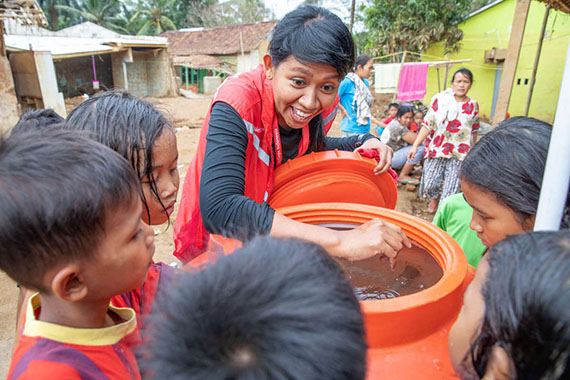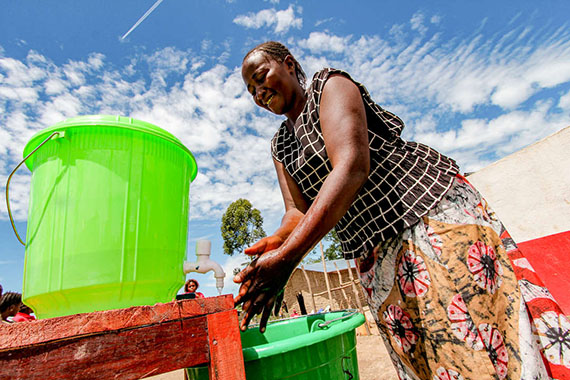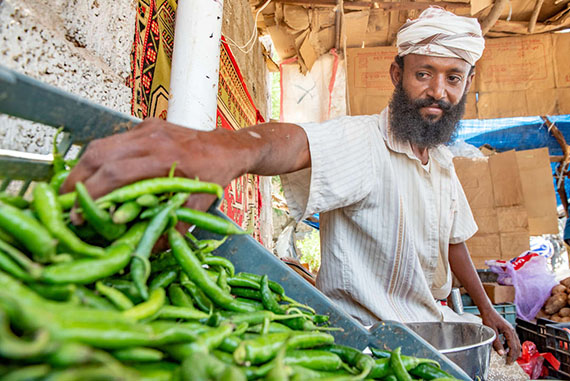
Across the world, the emergencies Mercy Corps responds to can take many forms — hurricanes, earthquakes, violence forcing entire communities from their homes. For the people affected, the first days and weeks are filled with moments of uncertainty and loss, but are also times of cooperation and creativity as communities come together and develop solutions. So when disaster strikes, where do Mercy Corps’ teams begin to help families and communities survive? More often than not, our first response includes WASH: Water, Sanitation, and Hygiene. In moments of crisis, Mercy Corps’ WASH experts’ priority is to provide communities with the basic necessity of water and sanitation so they can focus on rebuilding their lives. Whether it’s partnering on a reverse-osmosis process to desalinate ocean water in The Bahamas, or piping in clean water when wells become contaminated after floods in Indonesia, survival starts with clean water. 
Mercy Corps Indonesia team member Piva shows children a water point, built to prevent the community from relying on poor-quality river water after major floods damaged other sources.
At its core, WASH is a matter of public health. Engaging with local partners to promote key hygiene and disease-prevention practices (like hand-washing) is as important as strengthening water infrastructure. 
In the DRC, water scarcity makes families more vulnerable to diseases including Ebola and COVID‑19. Kavira uses one of the many hand-washing stations built by Mercy Corps.
After catastrophic events, we are often among the first humanitarian aid organizations on the ground. As an established leader in emergency and early recovery, Mercy Corps swiftly mobilizes resources to reestablish disrupted water and sanitation services. As the moment of crisis subsides, where do we begin to pave a road to recovery? Seeking lasting change, we equip communities with long-term solutions to meet their biggest needs. Water management for agriculture is key to building food security — and job security. In Yemen, where the world’s worst humanitarian crisis is exacerbated by extreme climate events, Mercy Corps employed farmers to rehabilitate irrigation canals, helping people earn income and also access flood water to irrigate their crops. 
We work with people like Wassim, who was hired by Mercy Corps to help build an irrigation channel. He invested his earnings in a vegetable stand, to better support his four children.
From Mali to Nepal to Jordan to Timor-Leste — and in so many places where shifting conflicts and unpredictable weather patterns make water access increasingly difficult — Mercy Corps helps provide solutions based on the availability of local resources, and by ensuring that the people who are most affected by water issues are the key leaders and decision makers in the process. For more about our unique approach, and to hear firsthand from some of our WASH experts, read From emergency to recovery: Delivering water, sanitation, and hygiene. Thanks for taking a moment to learn about our lifesaving and life-changing work, and for being a member of our global community. Sincerely, The Mercy Corps team |
| STAY CONNECTED |
|---|
|
||||||